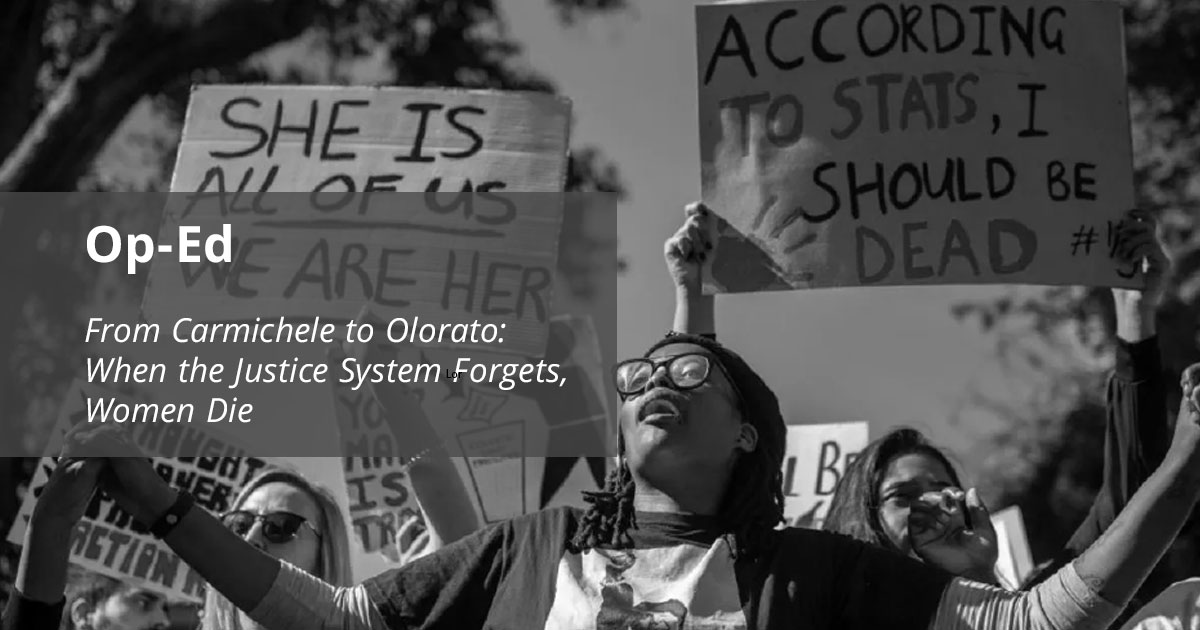The recent murder of Olorato Mongale is not an isolated tragedy. It is a painful reminder that South Africa’s criminal justice is failing and refusing to learn from its own history. Recent reports suggest that Olorato was a victim of a syndicate. Her death has now been confirmed as yet another femicide in a country with some of the highest rates of gender-based violence in the world. Disturbingly, the men now implicated in her abduction and killing were previously arrested and released on bail on kidnapping charges.
If this story sounds familiar, you are not imagining it, we have heard it before.
More than two decades ago, the Constitutional Court handed down a decision in the case of Carmichele v Minister of Safety and Security[1]. In this case, a woman was brutally attacked by a man known by the State to be dangerous. The accused in question previously assaulted another women and was released on bail. This, despite warnings that he posed a threat to society. In Carmichele, the Court emphasised that the State can be held civilly liable for failing to protect women from known dangers. The judgment was seen as a legal reprimand and a moral reckoning. As far back as 2001, the Constitutional Court acknowledged the epidemic of gender-based violence and made it clear in unequivocal terms that police officers and prosecutors bear a constitutional duty to act with due diligence in protecting vulnerable people, especially women.
And yet, Olorato is dead.
Despite a clear constitutional standard and repeated calls for bail to be refused for crimes involving gender-based violence, South Africa’s justice system continues to treat violence against women as an administrative inconvenience. Arrests are made, bail granted, dockets lost, and women ultimately pay the price with their lives. The release of Olorato’s alleged abductors, who were out on bail when she was killed, mirrors the State’s conduct in Carmichele. But we cannot claim ignorance or novelty – we have known better since 2001.
This failure is systemic. It speaks to a State that refuses to take its obligation to prevent violence before it happens seriously. There is a deep aching irony in how Carmichele has become a ghost in our legal system. It may be cited in judgments and taught in law schools across the country but it’s completely ignored in practice. Legal principles and laws designed to protect fail when not implemented. And our laws are failing.
Olorato’s family will now begin a lifetime of mourning that no civil claim can undo. In the interm, we have to ask: how many more women and children must we lose before their lives are treated as more than afterthoughts.
The next Olorato is already at risk, and she will continue to be until our criminal justice system takes early intervention seriously. Until then, the next time we say “never again” will continue to ring hollow.
Tamika Thumbiran
In-House Counsel, Litigation and Implementation Unit
Project Co-Ordinator, Sexual and Reproductive Rights in Africa


